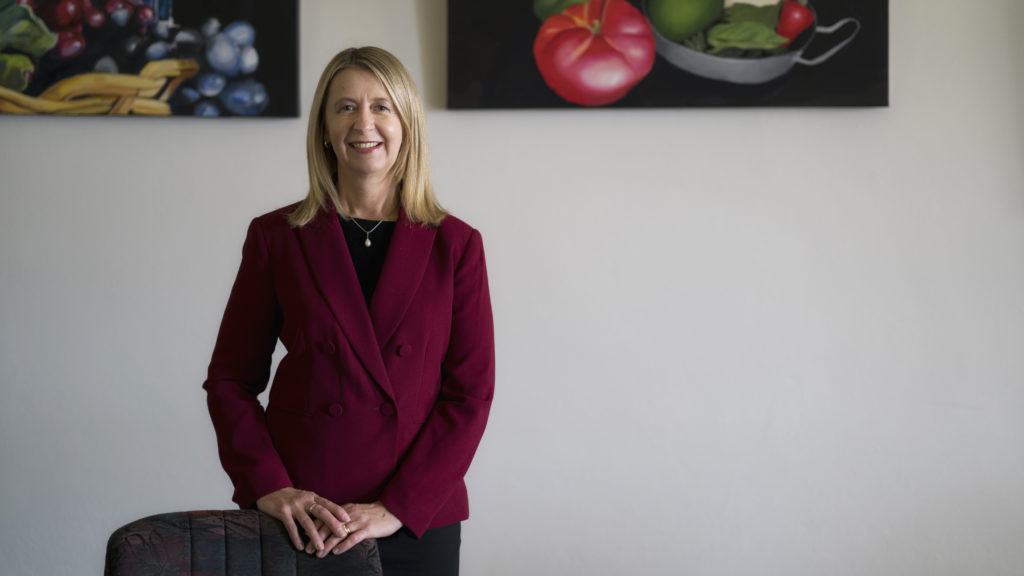What Will We Take Forward? – Jennifer Oaten

One of the most significant challenges faced by educators during recent months has been the obsessive amount of time our students have spent online, on TEAMs, Netflix, Instagram, Snap Chat or Tik Tock. Our students’ constant need for communication, connection and approval has been further promoted.
While this is one of many challenges faced, this time has also highlighted many opportunities for Santa Maria College to embrace. A crisis such as COVID-19 has forced us to adapt, to change, and to consider some important questions about what we will take forward and what we will leave behind from our current practices.
5 KEY AREAS OF LEARNING AND CONSIDERATION FOR THE FUTURE
The way we learn will change
While online opportunities provide some unique learning, students learn less in fully virtual environments. In-person, teacher-facilitated learning has too many advantages, but incorporating the following into our classrooms could provide further quality learning opportunities.
- Record content so students can revisit later. As demonstrated by YouTube, video is one of the most engaging forms of learning for teenagers.
- Live broadcasts from teachers, university staff, industry professionals and expert presenters from around the world who are an incredible resource could provide live interactions with classes for limited cost.
- Short courses to gain recognised credit, extension opportunities, and online apprenticeships, university courses and connections with employers.
- Reduced assessment requirements in Year 12 could be possible, given the flexibility with the number of tests, exam weightings and alternative university entry requirements proposed for 2020 graduates.
- Increased participation may occur for reserved students who usually make minimal contributions in class, maybe encouraged through the use of functions such as TEAMs chat.
- Microlessons are bite-sized presentations that enable the student to engage and process short focussed, meaningful learning without cognitive overload. This enables us to optimise student attention and retention.
Connecting Learning to Life will be highlighted
In 2019 the College developed our Connecting Learning to Life (CL2L) key attributes, and we believe this places us very well given the focus on many of these skills needed for the future and highlighted even further in recent weeks.
- CL2L skills students need in this unpredictable world such as informed decision making, creative problem solving, communication, and perhaps above all, adaptability are skills that employers will be looking for.
- A flexible timetable could provide a structure for some remote learning for senior students, enabling a later start to the day and an ability for students to immerse themselves in a subject for an extended period of time or to work at their own pace.
- Pods for collaboration via TEAMs can enhance the power of the collective ideas and teamwork and enable global collaboration, links with brother and sister schools, universities and other experts and allow contributions from home or from school.
Wellbeing will be prioritised
Recent weeks have confirmed the vital role schools play in developing a sense of connection and belonging in our students, so we need to embrace this focus for the benefit of all our girls. We need conversations and actions in the following areas.
- Mental Health and being well is a foundation for being happy and successful, especially among our most vulnerable children. Our Mental Health Strategy will form this foundation.
- The social connection provided through community, developing relationships and understanding of social rules, behaviours and actions need to be provided within and beyond year groups to encourage mentoring and belonging.
- Pastoral Care Time (PCT) needs to provide opportunities for students to engage in opportunities to be relational, grow and learn about themselves from significant adults and from their peers giving them the skills to resolve challenges they may face.
- Transition programs focus on developing connections of our incoming boarders with current students will also be a great benefit to incoming rural students.
- Reviewing our breaks to provide a vital window for physical, social and emotional development which are absolute essentials for wellbeing. Could we reduce break-time activities to allow girls to relax and socialise at recess and lunch?
- An events review will enable reflection on long-held events which could be offered in different ways.
Teachers' roles will be more flexible
Given the adaptability shown by our teachers in recent weeks, the following changes should be considered.
- Teacher roles could shift, making them more like coaches and mentors. They could provide structure, input sessions, guidance and feedback for growth.
- Teacher Professional Learning time could be more readily available if less face to face teaching was required freeing up teachers to upskill, gain additional qualifications through further learnings.
- Connection with other educators in similar teaching and leadership roles via TEAMs to enable sharing of best practice or connections with educational influencers. Being able to do this onsite without travel time or absentee covers would be of great advantage.
Connecting with our community will change
Our connection with our community is something we highly value and some suggestions for the future we will consider include:
- Webinars for parents where parents can listen anytime from the comfort of their home and provide an ongoing library of resources created specifically for our families.
- Parent interviews online is a future discussion.
- Social engagement through Zoom, for example, our recent successful book club is an excellent example of how we can engage with a greater range of our families and particularly our rural families.
- Alumni, Parent Network and Parent Council through Zoom will have the opportunity to increase connectivity and participation.
What an exciting time for Education!

With Laurissa Knowles From Valley Depths to Mountain Peaks (1993)
Laurissa Knowles (1993) has had an incredible career journey so far, from Santa Maria College Teacher to Celebrant and Councillor.

Elevating Spaces: Diana Ellis’ Signature Touch & Architecture Magic
What happens when you mix a love for art, travel, nature, and creativity with construction and building? You get the essence of Diana Ellis’ career!

The Power of Expectations in Shaping Student Success – Jennifer Oaten
Discover the transformative impact of expectations on student success. Learn how belief shapes outcomes in education and beyond.
- Featured
Author: Santa Maria College
Santa Maria College is a vibrant girls school with a growing local presence and reputation. Our Mission is to educate young Mercy women who act with courage and compassion to enrich our world. Santa Maria College is located in Attadale in Western Australia, 16 km from the Perth CBD. We offer a Catholic education for girls in Years 5 – 12 and have 1300 students, including 152 boarders.






